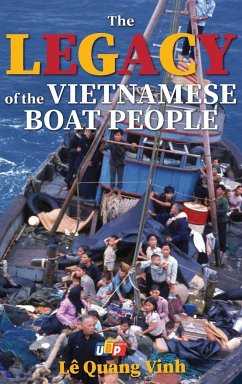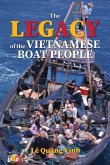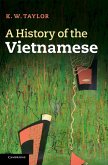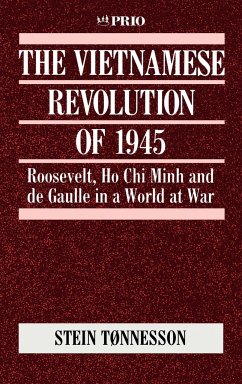FOREWORD I have visited Vi¿t Nam (Vietnam) on more than a dozen occasions, mainly for business but I have also travelled through the country as a tourist. However, my knowledge and understanding of Vietnamese history, society and culture is limited so in no way am I in a position to speak authoritatively on the historical contents or any interpretation of events described in this book, The Legacy of the Vietnamese Boat People. It is written by my colleague and friend Lê Quang Vinh, who with his family are boat people. Much of what I know about Vi¿t Nam has been gleaned from my visits to the country and informed by the author of this book, particularly when I was travelling with him on many of my visits to the country. Clearly, I am not in a position to provide an informed critique of the contents of this publication so instead I shall focus my comments on certain characteristics, beliefs and behaviours of the author that have driven him to undertake the massive task of producing this book which covers over 4,000 years of Vietnamese history and culture. In this book he gives his own interpretation of the importance of many of the significant events that occurred in the history of Vi¿t Nam, with particular emphasis on the period since 1900. The book provides an even deeper focus on more recent events around the civil war in the country and the political, social, and cultural changes that occurred after the conclusion of hostilities in 1975. My initial contact with the author was early in the first decade of this century when he approached me as the then Principal of Tuart College about promoting the College's educational programs to the local Vietnamese community. He had identified that the adult ethos of the institution and its educational programs which were supported by a strong English as a Second Language program would be invaluable to assist local Vietnamese aiming to undertake tertiary education. Due to the author's knowledge of the local Vietnamese community, his enthusiasm and commitment to encouraging local Vietnamese to take up the educational opportunities offered by the College, and the promotional efforts he made, this project was successful both for local Vietnamese and the College. Buoyed by this success, he then turned his attention to promoting the College to students in Vi¿t Nam who were aspiring to undertake their tertiary education studies in Australia, particularly in Western Australia. It was on this educationally and commercially successful project that I worked most closely with him over about seven years before I retired in 2010. During this time that I went through a massive learning curve about the Vietnamese educational system, individual schools with whom I developed particular relationships, Vietnamese teachers and their students, the aspirations Vietnamese parents had for their children and the Vietnamese society and its culture. The author's contribution to developing my knowledge base about and the success of the venture in Vi¿t Nam was vital and invaluable. The author is a man whose life experiences and interests are many and varied, and during the time I have known him I have come to recognise his many admiral character traits. He has demonstrated that he is a keen and conscientious worker with a lovely sense of humour and with a thoughtful and compassionate nature that expresses itself in his willingness to help people improve their lives and develop their potential as fully as possible.








